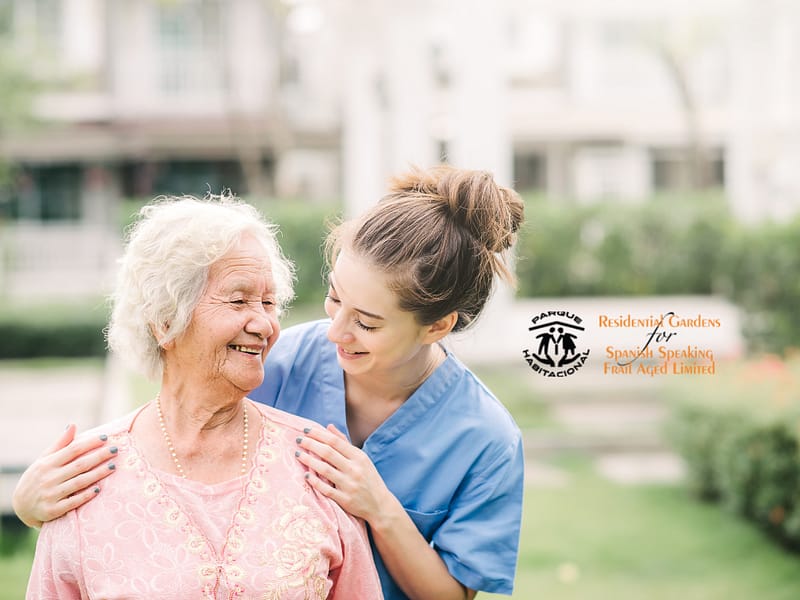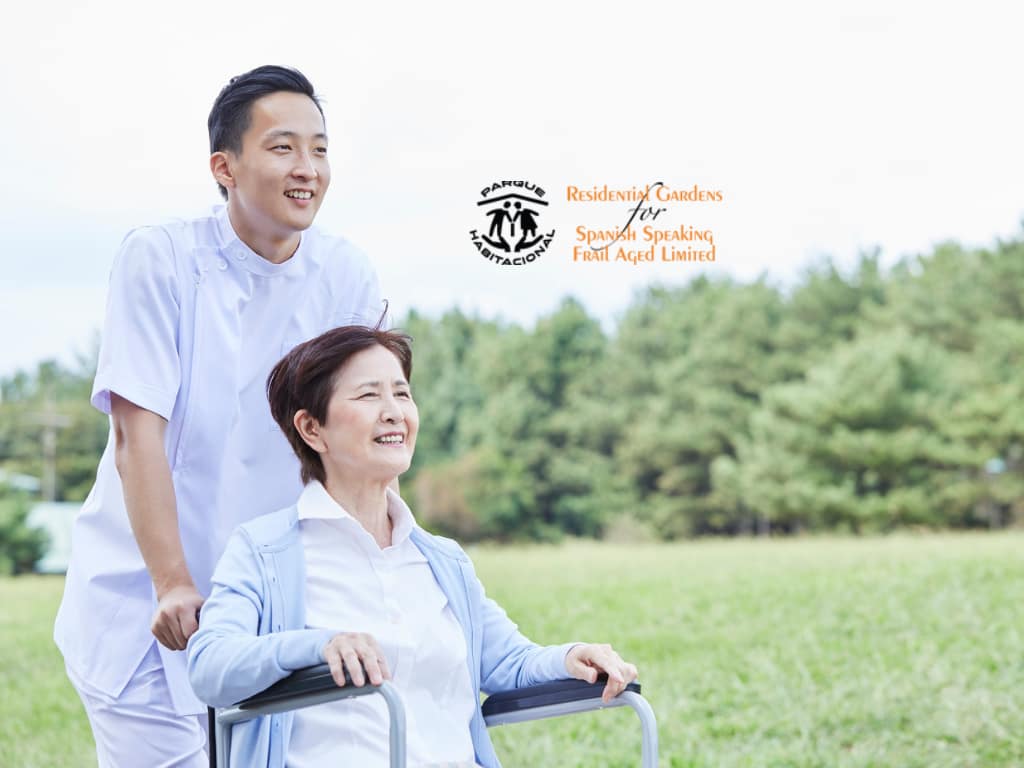Routine is essential in residential aged care facilities because it provides stability. Many elderly residents may struggle with memory loss, mobility issues, or medical conditions that make unpredictability stressful. A structured daily plan helps reduce anxiety and promotes a sense of control.
Having scheduled activities, set mealtimes, and regular check-ins from caregivers ensures that residents receive the support they need. A well-maintained routine also helps with medication management, personal hygiene, and meal preparation.
By maintaining structure while offering flexibility for personal preferences, aged care nursing homes create a balance between independence and necessary care.
Morning Routines and Daily Care Services
How Residents Start Their Day in Residential Aged Care
Each morning, residents wake up at their preferred time. Some may need assistance getting out of bed, while others are independent and enjoy their morning routine at their own pace.
Breakfast is typically served in a communal dining area, but some residents may prefer to eat in their rooms. Meals are prepared with nutritional needs in mind, ensuring that everyone receives a balanced diet. After breakfast, residents can choose how they want to spend their morning—whether relaxing, socializing, or taking part in planned activities.
For those who require medical support, morning check-ups or therapy sessions may be scheduled. Nurses monitor vital signs, administer medications, and address any health concerns before the day’s activities begin.
The Role of Caregivers in Assisting with Hygiene, Dressing, and Medication
Caregivers in age care nursing homes help residents maintain personal hygiene and feel their best. This includes assistance with bathing, grooming, and dressing, depending on individual needs.
Residents who need help with mobility receive support when moving from their bed to a wheelchair or walking frame. Caregivers ensure that residents are dressed appropriately for the day and feel comfortable in their clothing.
Medication management is a crucial part of residential aged care. Nurses and caregivers administer prescriptions, monitor side effects, and keep track of any changes in a resident’s health. This helps prevent missed doses or complications from incorrect medication use.
With professional caregivers available throughout the morning, residents receive the support they need while maintaining as much independence as possible.
Meals and Nutrition in Aged Care Sydney
Proper nutrition is a key part of health and well-being in aged care Sydney. Meals are carefully planned to meet dietary needs while also being enjoyable and satisfying.
How Meals Are Planned in Aged Care Nursing Homes
In aged care nursing homes, meals are designed by dietitians to ensure they provide the right nutrients for seniors. Many residents have specific dietary needs due to medical conditions such as diabetes, heart disease, or swallowing difficulties.
Residents usually have a choice of meals, allowing them to enjoy their favorite foods while maintaining a balanced diet. Fresh ingredients are used to prepare meals, and cultural or personal preferences are considered. Some facilities even offer seasonal menus or special holiday meals to bring variety to the dining experience.
Meals are served at set times, often in a communal dining area. This provides a social experience, allowing residents to engage with others while enjoying their food. For those who need assistance, caregivers help with feeding to ensure they receive proper nutrition.
Dietary Accommodations for Different Health Needs
Every resident in residential aged care facilities has unique dietary requirements. Some may need soft foods or pureed meals due to difficulty swallowing, while others may require low-sodium or high-protein diets.
Food allergies and intolerances are also taken into account, and alternative meal options are available. Hydration is another important focus, with water, tea, and juice provided throughout the day.
Proper nutrition plays a significant role in maintaining strength, energy levels, and overall health. By providing well-balanced meals tailored to residents’ needs, aged care Sydney facilities ensure seniors remain nourished and well-cared for.
Social and Recreational Activities in Residential Aged Care Facilities
Loneliness can be a challenge for elderly residents, so aged care Sydney homes create opportunities for socialization. Group activities such as music therapy, storytelling sessions, and arts and crafts provide entertainment and engagement.
Residents can also participate in group games, movie nights, and special themed events. Many aged care nursing homes host visiting entertainers, guest speakers, or therapy pet programs to bring joy and excitement to the community.
Outdoor activities, such as gardening or short walks, allow residents to enjoy fresh air while staying active. Religious services, cultural events, and hobby groups cater to personal interests, ensuring everyone can find an activity they enjoy.
The Impact of Group Activities on Mental and Emotional Well-Being
Engaging in group activities helps residents maintain cognitive function and emotional stability. Social interaction can reduce feelings of isolation, boost mood, and provide a sense of belonging.
Exercise classes and movement-based activities promote physical health, reducing the risk of falls and improving mobility. Mental stimulation through puzzles, book clubs, or discussion groups keeps minds sharp and engaged.
By offering a variety of social and recreational activities, residential aged care facilities create an enriching environment that enhances quality of life for all residents.
Exercise and Wellness Programs for Residents
Regular movement helps seniors maintain their independence. Simple activities like stretching, walking, and seated exercises improve flexibility and prevent muscle weakness. For residents with mobility challenges, caregivers provide guided movement sessions to ensure they remain active in a safe way.
Exercise is also beneficial for mental health. Studies show that physical activity can reduce stress, improve mood, and enhance cognitive function. Many aged care Sydney facilities incorporate light exercise into daily routines to support emotional well-being.
How Movement and Exercise Programs Help Maintain Health
Many residential aged care facilities offer customized exercise programs that cater to different fitness levels. Some residents may enjoy group fitness classes, while others prefer one-on-one physiotherapy sessions. Common activities include:
- Gentle stretching and yoga – Helps with flexibility and relaxation
- Chair-based exercises – Ideal for those with limited mobility
- Walking groups – Encourages socialization while promoting heart health
- Balance training – Reduces the risk of falls and injuries
These programs not only keep residents physically active but also create opportunities for social engagement, making exercise enjoyable and fulfilling.
Personal Time and Family Visits in Aged Care Nursing Homes
Many residents enjoy personal time to read, listen to music, or participate in hobbies. Some prefer to spend time in gardens or outdoor areas, while others like to watch their favorite shows or engage in creative activities like painting and knitting.
Personal time is essential for mental well-being. It allows residents to reflect, rest, and enjoy solitude in a peaceful environment. Staff in residential aged care facilities encourage residents to pursue activities that bring them comfort and joy.
For those who like spiritual or religious practices, designated prayer or meditation spaces are available. Many facilities also offer personalized activity plans, ensuring each resident can spend their time in ways that feel meaningful to them.
The Importance of Family Visits in Residential Aged Care Facilities
Family visits play a crucial role in a resident’s emotional health. Staying connected with loved ones provides reassurance, reduces loneliness, and enhances overall happiness.
Many residential aged care homes have dedicated visiting areas where families can spend quality time together. Some facilities also allow virtual calls for those who live far away, making it easier to maintain strong family bonds.
Visitors are encouraged to participate in activities, share meals, or simply spend time reminiscing with their loved ones. The presence of family members helps residents feel supported and valued, creating a sense of home even within a care facility.
Evening Routines and Restful Sleep
How Staff Support a Calming Bedtime Routine
As evening approaches, staff help residents wind down with calming activities. This may include soft music, reading, or gentle stretching exercises. Some aged care Sydney facilities also offer aromatherapy or relaxation techniques to help residents ease into sleep.
For residents who need assistance, caregivers provide help with changing into nightwear, adjusting bedding, and ensuring comfort before sleep. Those requiring nighttime medication receive their doses as prescribed, ensuring a smooth transition to rest.
Lights are dimmed, and noise levels are reduced in residential aged care facilities to create a restful atmosphere. Staff are also available throughout the night to assist residents if needed, providing reassurance and support.
The Importance of a Comfortable and Safe Sleep Environment in Residential Aged Care
A secure and comfortable sleep setting is vital for overall health. Many residents have medical conditions that require special bedding or sleeping positions, and facilities ensure that each resident’s needs are met.
Temperature control, proper ventilation, and accessible call buttons allow residents to feel safe and at ease. Those who struggle with sleep may receive tailored care plans, including adjusted schedules or sleep-support techniques.
By maintaining a structured and soothing nighttime routine, aged care nursing homes help residents get the rest they need to stay healthy, energized, and engaged in daily life.








